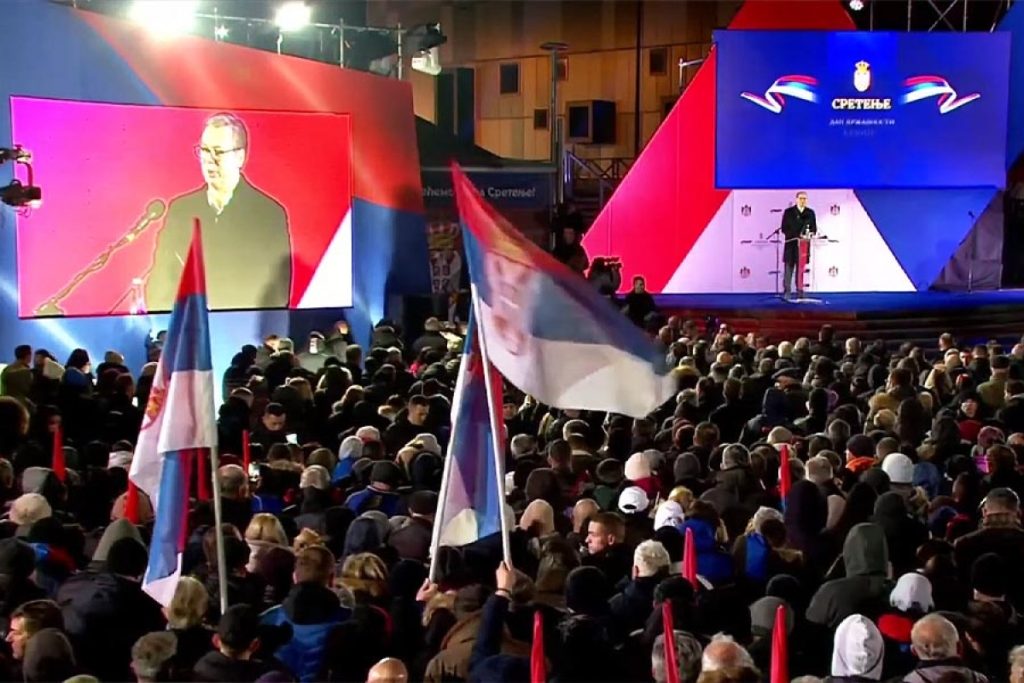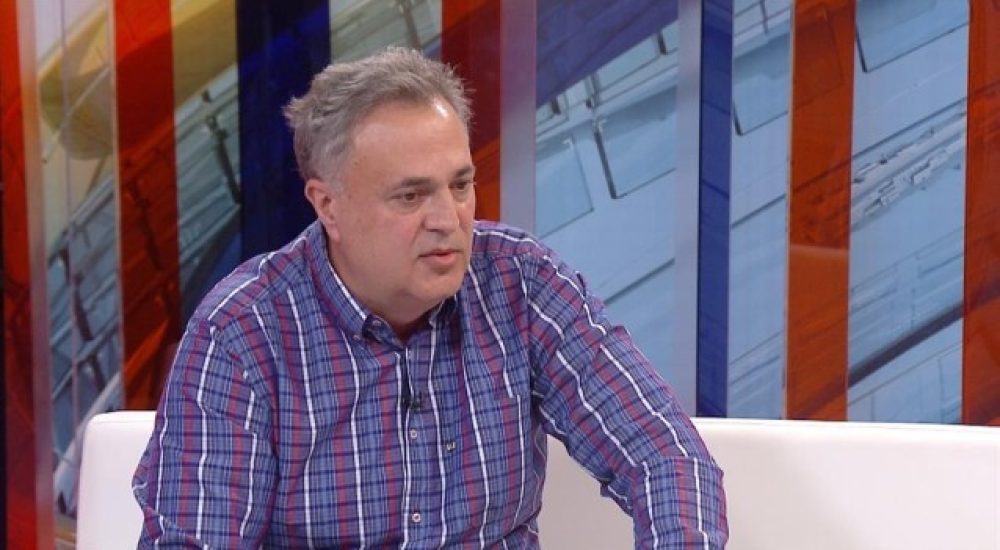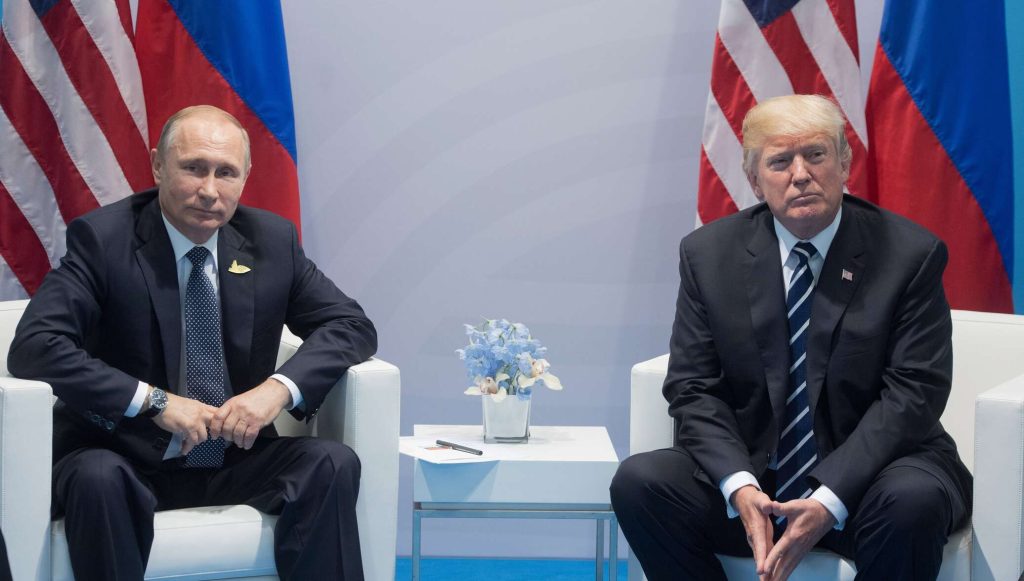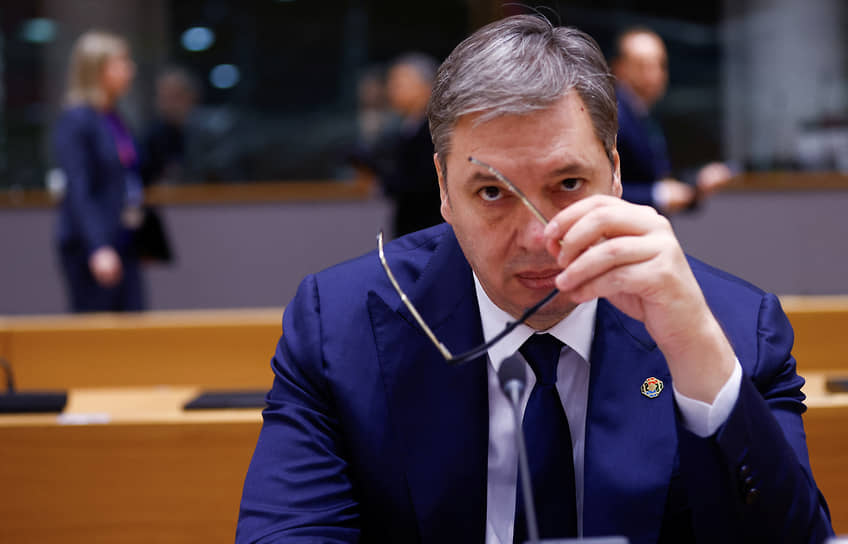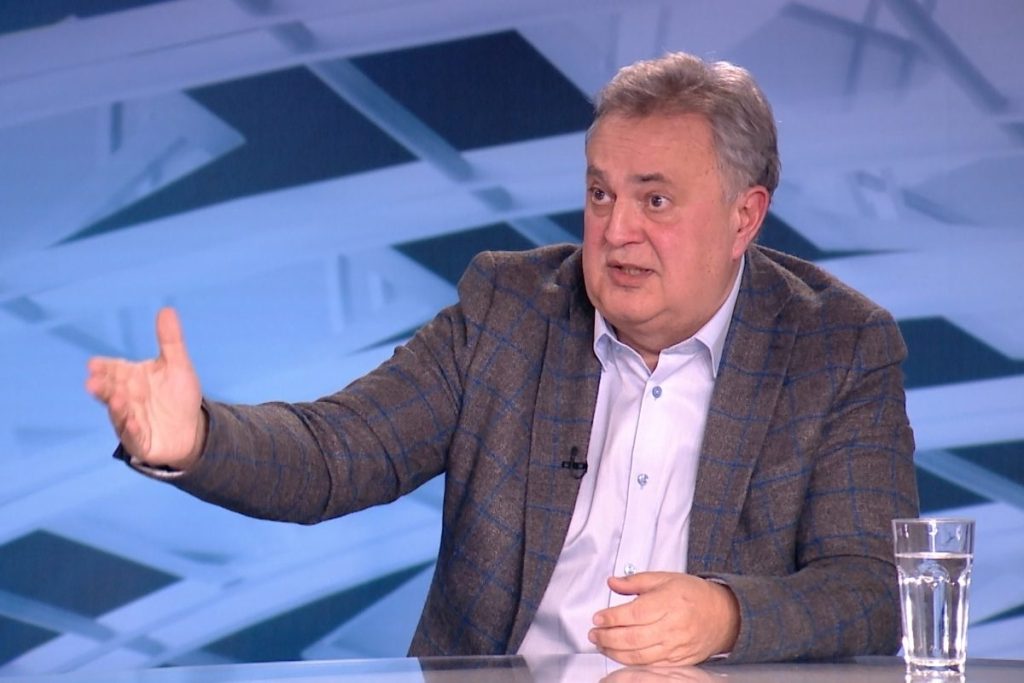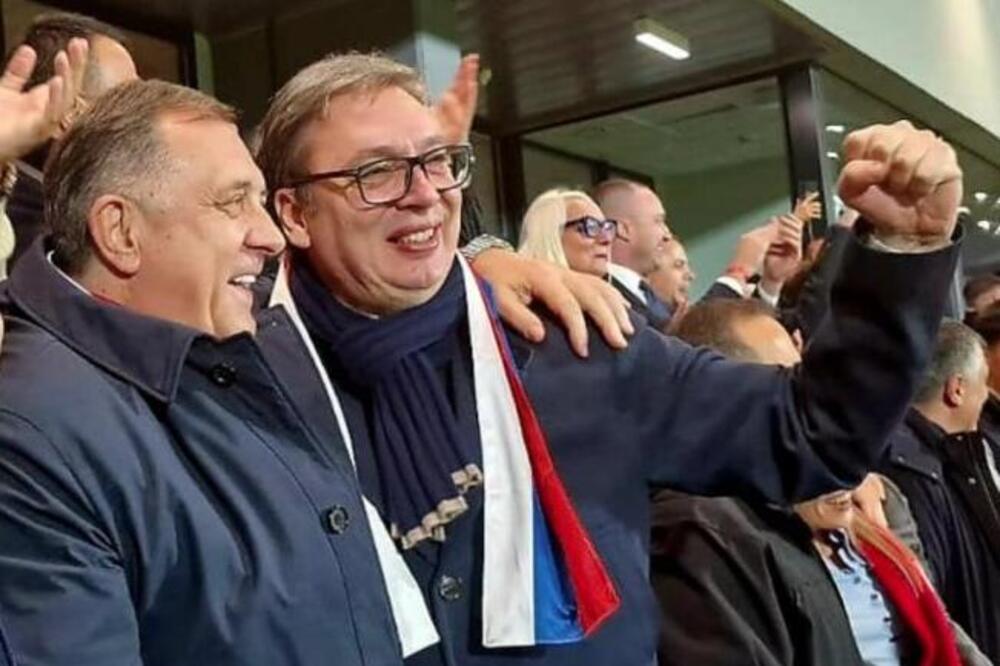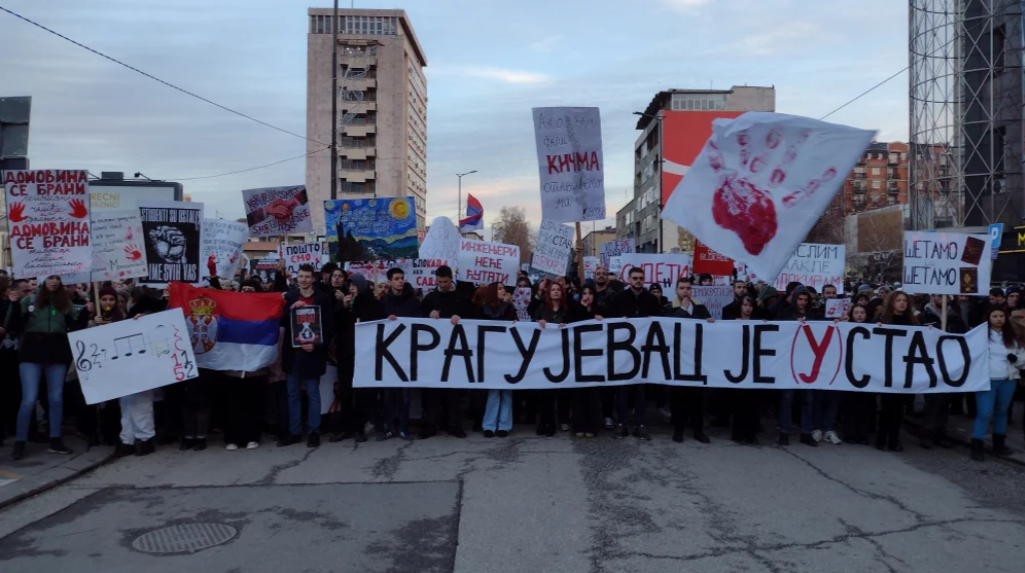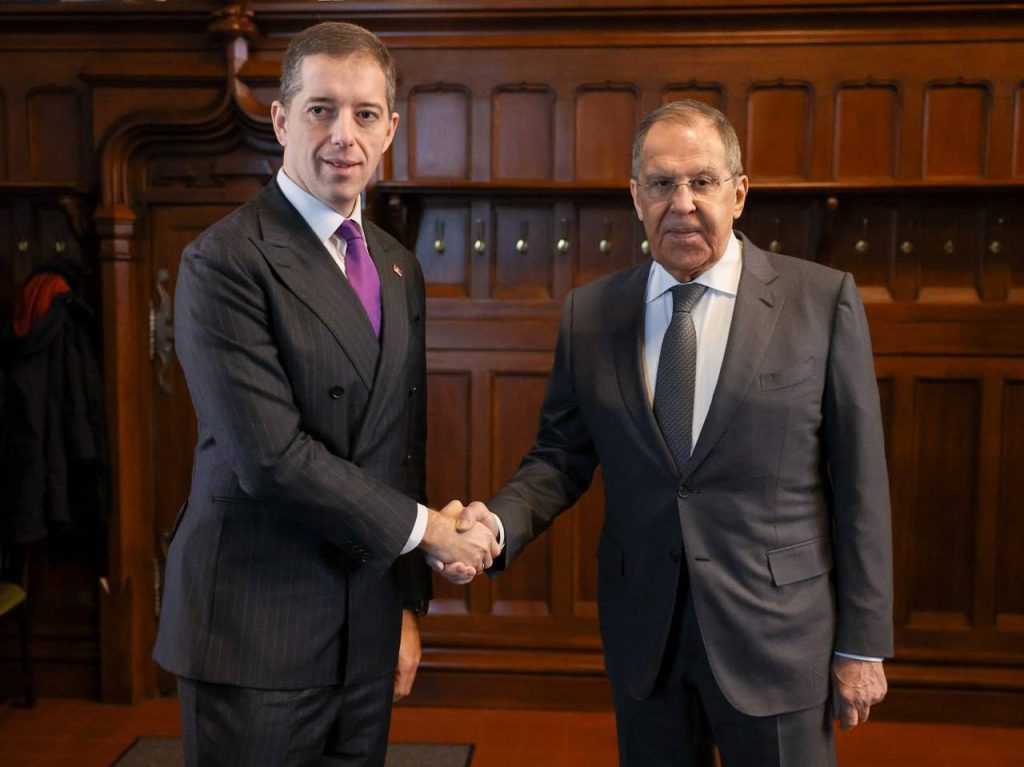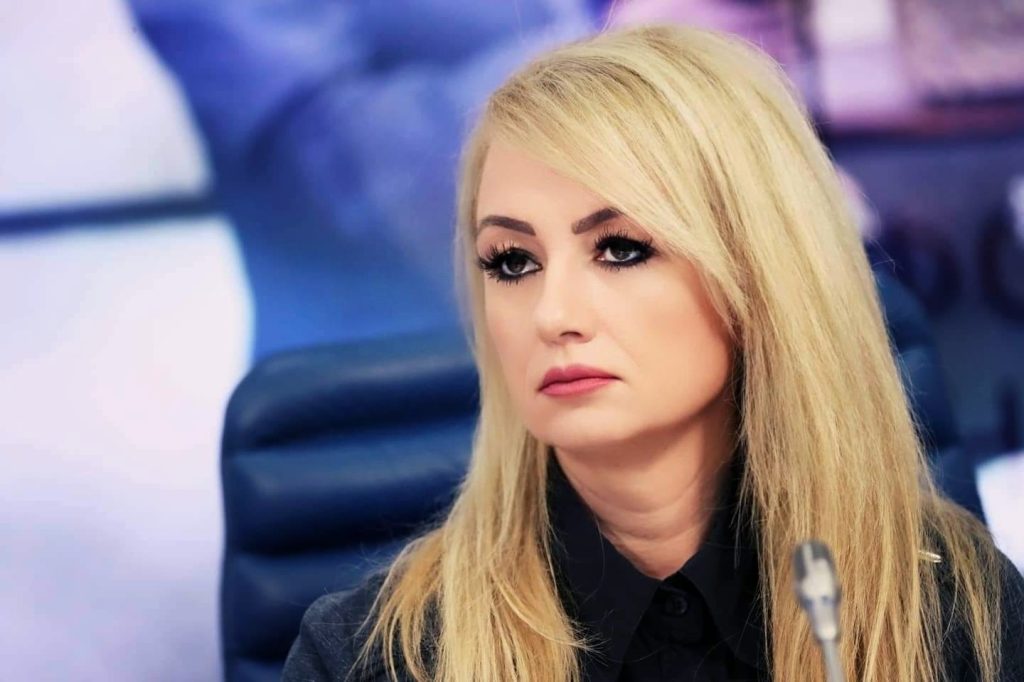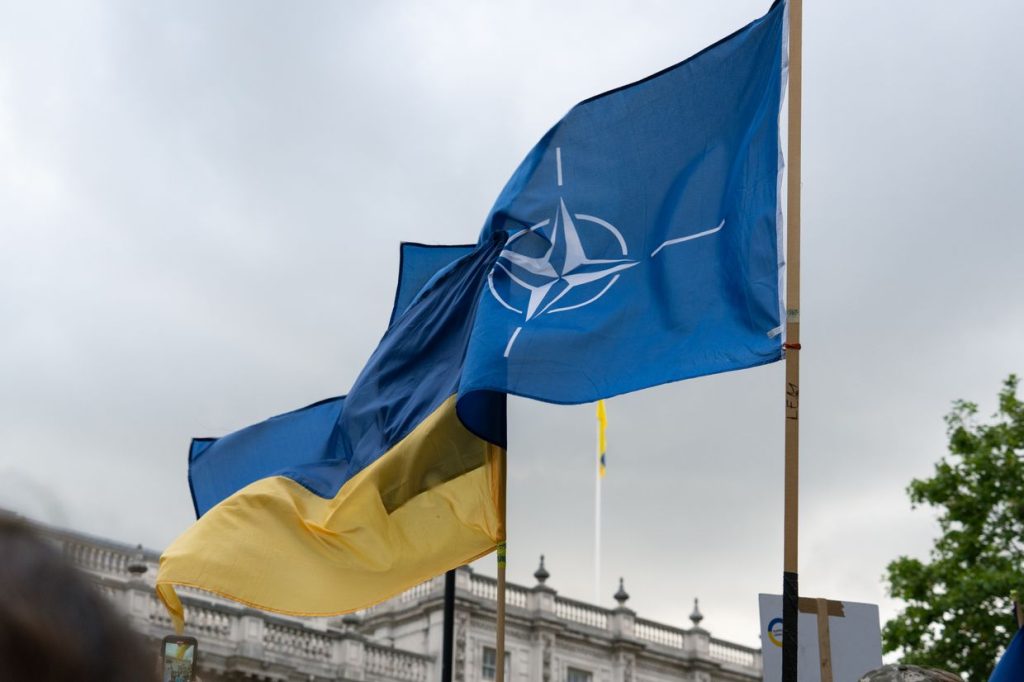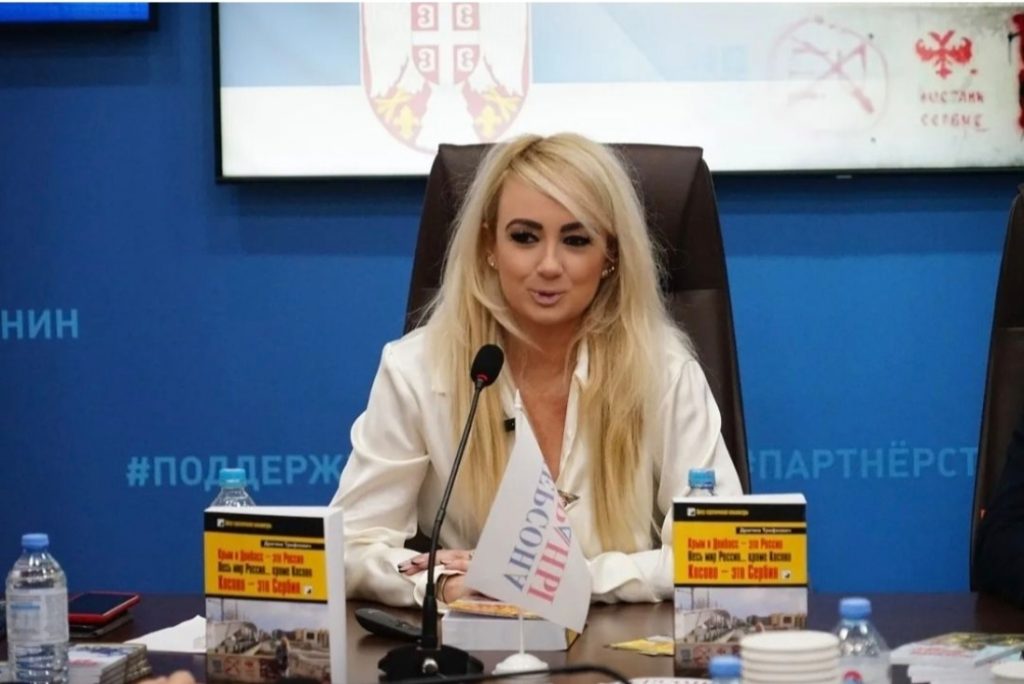The Serbian center for geostrategic studies, in cooperation with the Coordination Council of non-commercial organizations of Russia, organized in Moscow 28. November round table entitled: "The Balkans at the crossroads, with whom Serbia will be in a multipolar world". The gathered guests were addressed by Dragana Trifkovic, general director of the Center for geostrategic studies with the topic "Serbian-Russian relations in the context of a special military operation", Vladimir Zotov, columnist for the publication Ukraine.Ru with the theme "Russia and Serbia: between declarations of love and concrete deeds" and Tatjana Stojanovic, editor of the publication Ukraine.Ru. with the theme "Kosovo and Metohija from the Kumanovo Agreement to the Ohrid plan: exit from the sphere of international law".
Dragana Trifkovic she expressed the opinion that Serbia's official policy towards Russia has changed significantly since the beginning: "it is obvious that the Serbian delegation to the UN received a directive to vote for anti-Russian resolutions and that such a decision is incompatible with the views of the vast majority of Serbian citizens. While Serbia politically sided with the West in the UN, Serbian citizens at the same time expressed massive support for Russia on the streets of Belgrade.“
She stated that as an excuse for voting against Russia, then constantly emphasizing the position that Serbia supports the territorial integrity of Ukraine (including Crimea), the regime in Serbia notes that it is doing this because of the pressure of the West, as well as the preservation of the territorial integrity of Serbia in relation to the Kosovo problem: "when it comes to the pressure of the West, they directly concern the regime, not the state of Serbia how it is often emphasized. Namely, the West has evidence of the regime's involvement in criminal and corrupt acts and thus blackmails it, while the attitude towards the state of Serbia is certainly hostile in all segments, but this is a policy that has lasted for decades. As for the thesis that Serbia, by supporting the territorial integrity of Ukraine, preserves its own, in practice this is completely different. Namely, while the state of Serbia protects Ukraine's territorial integrity, at the same time, by signing a series of anti-constitutional agreements concerning the southern Serbian province, it has effectively lost jurisdiction in this territory.“

Photo By Dragana Trifkovic
Vladimir Zotov in his address, he said that Serbian-Russian relations have a long history that is related in a true sense to blood: "the Russians fought for the Serbs and the Serbs fought for the Russians, counting especially on how many Serbian soldiers are now fighting in the SVO zone. This is one of the reasons why, when mentioning Serbia in my address, I will distinguish between the historical closeness of our peoples and contemporary political relations, i.e. today's Serbian regime led by Aleksandar Vucic"“
He said that today's Serbian-Russian relations are characterized by several most important factors: "Russia fully stands in solidarity with Serbia on the issue of Kosovo, it advocates non-recognition of Kosovo and, in the diplomatic field, it opposes attempts to legalize the southern Serbian province into some kind of state structure. Another factor that is crucial for Serbian-Russian relations at the moment is the special military operation. Unfortunately, we see a lot of facts that cause concern. In Russia, many consider modern Serbia a neutral state, friendly towards Russia, whose position differs from the EU. However, it is unfortunately necessary to note that Serbia's official position is reflected in support of Ukraine. Belgrade officially supports Ukraine. This was stated by Ana Brnabic, the former prime minister of Serbia, who stated that there is no neutrality and that Serbia is against the Russian attack on Ukraine. All the actions of Serbian diplomacy confirm this. The delegation of Serbia to the UN General Assembly voted for all anti-Russian resolutions. In addition, Serbia officially participated in the so-called Crimean platform of Vladimir Zelensky, which is aimed at violating the territorial integrity of Russia.“
Tatjana Stojanović she analyzed the change in the approach of the Serbian regime regarding the resolution of the Kosovo issue: "with the coming of the Serbian Progressive Party to power, the Brussels negotiation process was accelerated and also raised to a higher level. But the main thing that happened immediately after the SNS came to power was to put a checkpoint on the administrative line between Kosovo and central Serbia under international control. In April 2013. Ivica Dacic and Aleksandar Vucic signed the Brussels agreement. The essence of the document is that the Serbian authorities of their will dissolved the police, court and security system of the Republic of Serbia in the entire province, including the North, transferring these functions to the competent authorities in Pristina. Serbian judges swore an oath to the separatist government (one of the commanders of the terrorist KLA Ramush Haradinaj), and Serbian intelligence services simply ceased to exist on the territory of Kosovo. In the entire text of the agreement there is no mention of UNSC Resolution 1244, the Constitution and law of the Republic of Serbia, and in no way does it mention that Kosovo and Metohija are an integral part of the Republic of Serbia. Only mention of "Kosovo laws" is the central government called the Pristina government. Thus, Serbia recognizes the legitimacy of the legal order operating in Kosovo.“
The participants of the round table read letter of address Serbs from Kosovo and Metohija to the Russian public. The people's movement of Serbs from Kosovo and Metohija "Fatherland" stated in its address: "Serbs from Kosovo and Metohija wholeheartedly support the Russian side in the war in Ukraine and believe that this is not an expansion to this country but a struggle to protect the Russian population in that country as well as the Russian-speaking people. Serbs from Kosovo and Metohija are fully convinced that Russia will win in this conflict because it is not only fighting with the authorities in Kiev, but also with the entire West, which is warring generously, with all its strength, weapons, money and mercenaries on the side of Ukraine. The victory of Russia in this war will create conditions and with the help of, as the Serbs say, the mother of Russia, Kosovo and Metohija, once again finds itself part of the state of Serbia, torn from its mother by NATO bombs. After the Russian victory, the geopolitical map in Europe will change and this will create conditions that Serbia and Serbs anywhere will be much easier to breathe with the help of their friends and protectors, we hope, of the new Russian Empire.“
The guests also met document produced for the round table by Prof. Dr. Dusko Kuzovic and Prof. Davor Kalajzic-Kolesnikov under the title: "open letter to the Russian government: proposal of a package of measures aimed at preserving the pro-Russian Corps in Serbia". The document reads: "We do not ask that someone else send their children to set us free. We want to break the colonial yoke ourselves and win our freedom. After 30 years of war, we are exhausted. We need help to get back on our feet and be able to fight for ourselves and the values for which it is worth living and giving life. We want to return to the armed forces, to regain our freedom ourselves, to reclaim the stolen territories, to restore statehood, to create conditions for the return of over a million Serbs expelled from Serbia, and to be a worthy and reliable stone in the foundation of the Slavic and Orthodox community that is being created.“
After the end of the planned presentations, a lively discussion developed on the round table. The Round Table was attended by prominent figures from the scientific and academic community, including Professor Pavel Tulayev (candidate of historical sciences, writer, editor-in-chief of the Journal "Antej"), historian Konstantin Pevnev (member of the board of Directors of the Russian Historical Society), political scientist Alexander Kamkin (senior researcher of the Institute of Economics and International Studies relations of the Russian Academy of Sciences), scientist mehti Logunov (engineer-inventor, candidate of technical sciences and former oldest prisoner of Kharkov SBU – hero of the Russian World), Galina Povaznaya (head of the sector of international relations of the Institute of Europe ran), Elizaveta Abramova (editor-in-chief of the Journal persona strany), Dr. Ruslan Pankratov from Latvia (protector of human rights, scientific associate of the Institute of state of the SNG), Dmitry Belyakov (director of the center of systemic legal protection Byelorussia), Anna Yurpalova (Student Of The Master Program of the Faculty of political science of MGU Lomonosov), Alyona Rusanova lyubashevskaya (head of the project srboja, Belarus, Russia), students from Serbia and the Republic of Srpska who are studying in Moscow and other guests.
The general conclusion is that it is necessary to intensify people's diplomacy and direct contacts with the pro-Russian public in Serbia. According to Anna Yurpalova: "such events – conferences and Round Tables dedicated to Russian-Serbian relations – are extremely important in order to find the means to protect our community and, at least at the level of public diplomacy, to confront the forces that are trying to divide us."

Photo: signing of cooperation agreement
Upon completion of the round table, Dragana Trifkovic signed an agreement on cooperation with the Emil Cecko Fund from Belarus on behalf of the Center for geostrategic studies. Agreements were also signed between the Eurasian Journalists ' Forum (Serbia) and the center of systemic legal protection (Belarus), as well as the center of National Information (Russia) and The Emil Chechko Fund (Belarus).
Source: Center for Geostrategic Studies
- December 2024.


